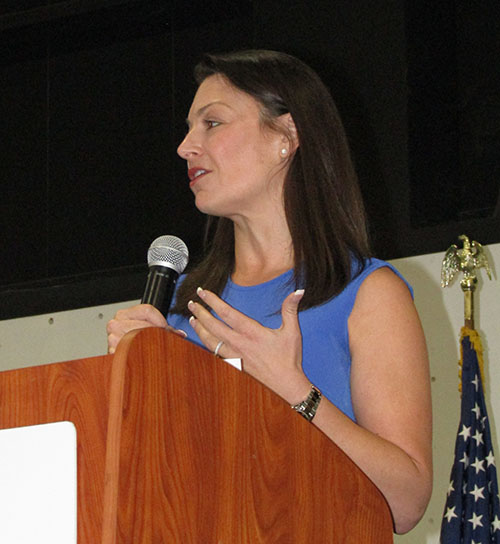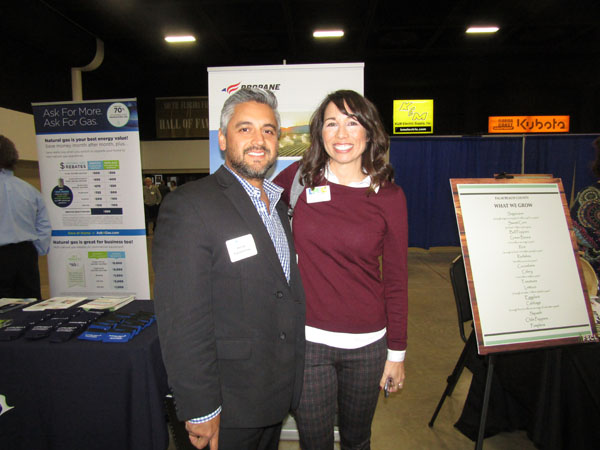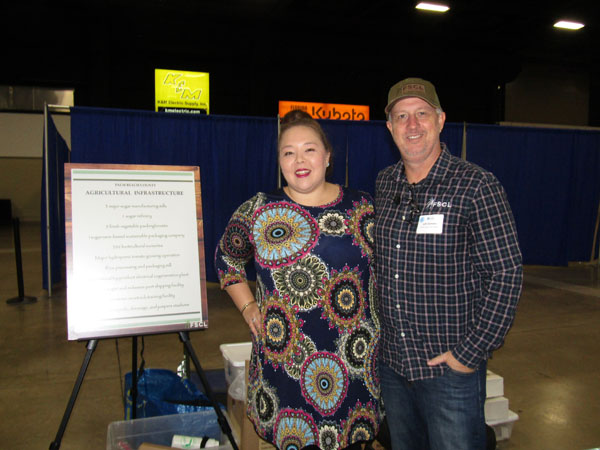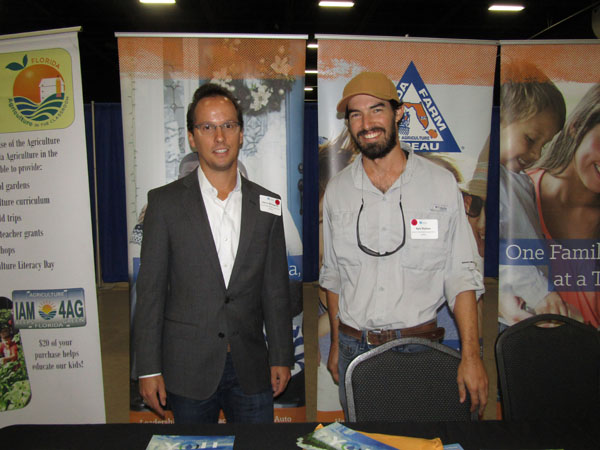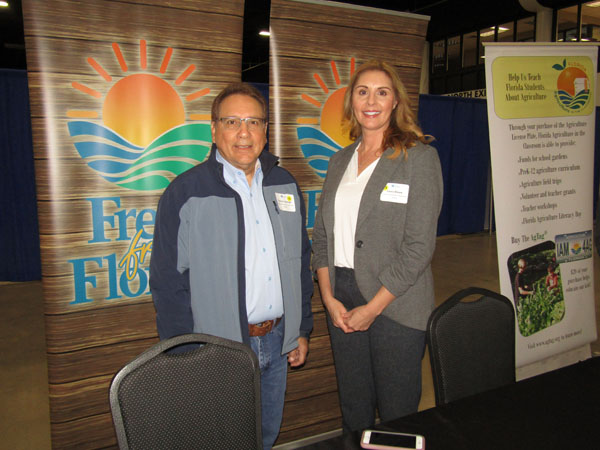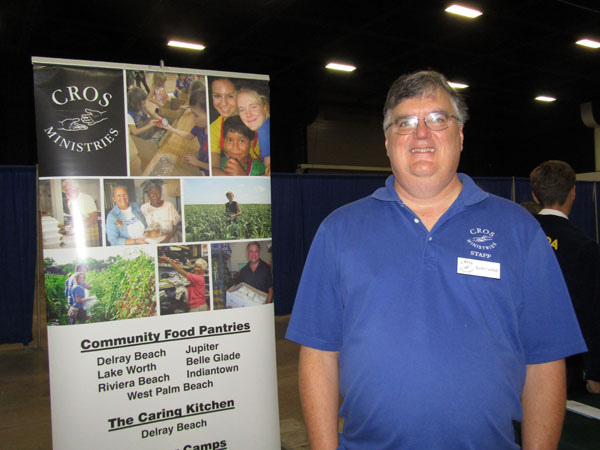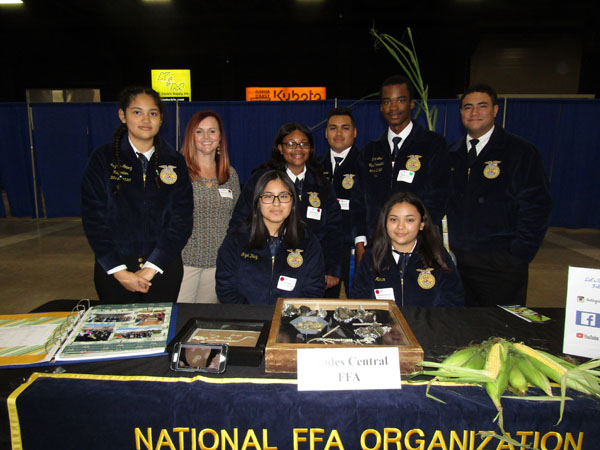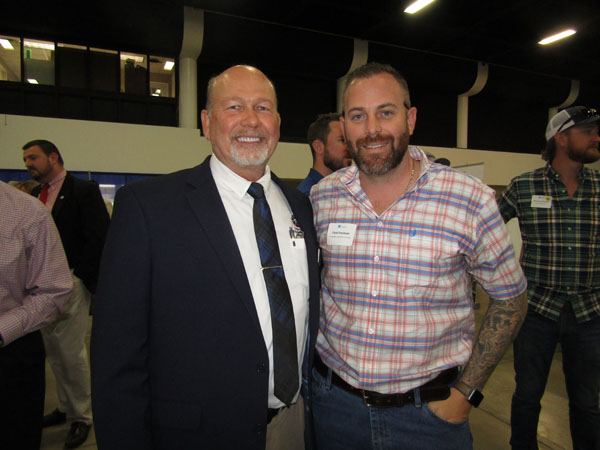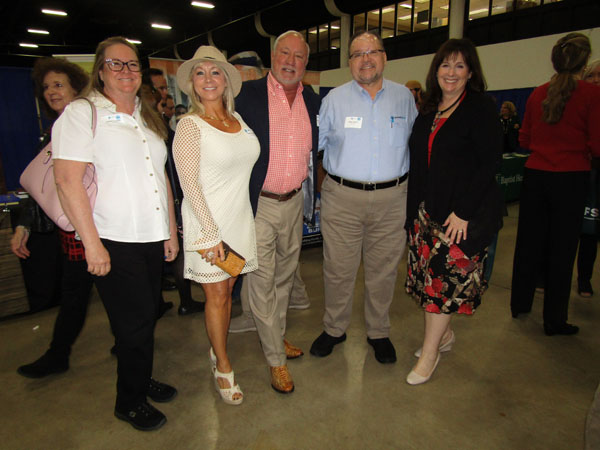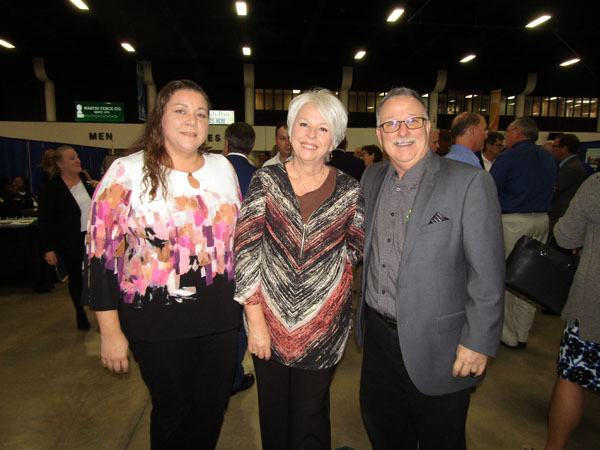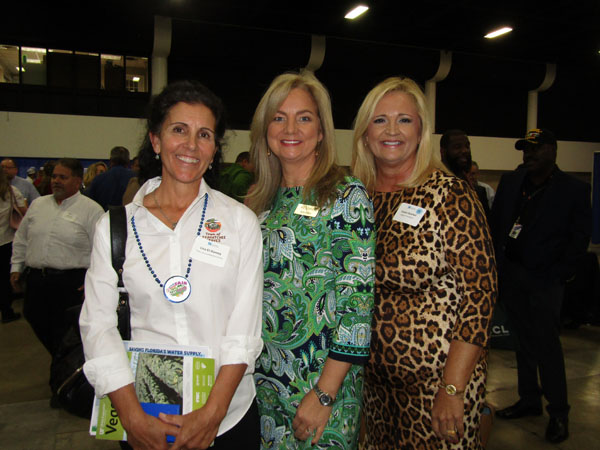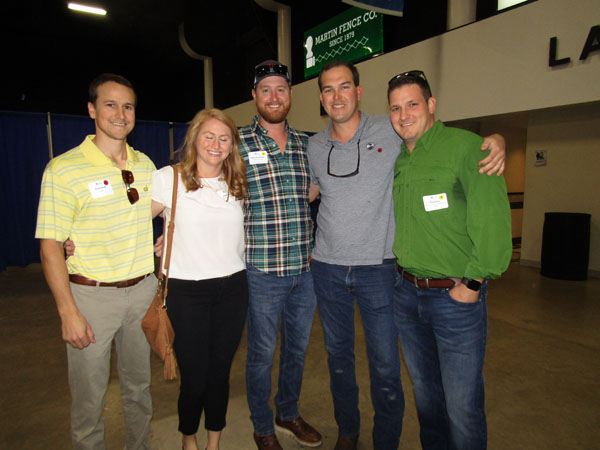Florida Agriculture & Consumer Services Commissioner Nikki Fried was the featured speaker at the Central Palm Beach County Chamber of Commerce’s Farm City Luncheon held Wednesday, Nov. 20 at the South Florida Fairgrounds.
Fried, born and raised in Miami, received her law degree from the University of Florida. She narrowly defeated former State Rep. Matt Caldwell (R-District 79) in November 2018 to become commissioner of agriculture and is now the highest-ranking Democrat in the state, and the first woman elected to the position.
“This lunch is pretty important to me for a lot of reasons, but most importantly, it was the first place I spoke last year,” Fried said. “This time last year, we were still going through a recount. I had not yet been officially declared the commissioner, but you all welcomed me here with the thought that I would become victorious at the end of the recount.”
Fried believes she was elected because she did not look like or have the same ideas as her predecessors.
“They wanted somebody who would come into this position thinking outside the box, thinking of ways that we can improve not only agriculture, but also our consumer services arm of this department,” she said. “We have been bold, and we have been trying to fix every single part of our department to make sure we’re responsive to our citizens and make sure that we are working together to expand agriculture.”
Fried reminded attendees that agriculture is the second-largest economic driver in the state, employing 2 million people with a $137 billion economic impact to the state and $4.2 billion in exports to 164 different countries. Florida is also the specialty crop capital, with more than 300 specialty crops. Palm Beach County alone employs 20 percent of its workforce, 170,000 people, in agriculture.
“Palm Beach County is the largest agricultural county in the entire State of Florida,” she said. “It is also one of the largest counties in the nation when it comes to agriculture.”
But Florida also faces challenges, particularly with the economy, changes in the environment, and with the North American Free Trade Agreement (NAFTA) and the United States-Mexico-Canada Agreement (USMCA).
“[NAFTA] was a bad deal for Florida farmers 25 years ago. USMCA today is no better,” Fried said. “I have heard from our farmers all across our state. I have gone up to Washington, D.C. I have met with our congressional delegation and all of our industry leaders and made sure that our delegation understood why this was going to impact our state. It’s more than 8,000 jobs that we would lose here in Florida if USMCA stands as is. That is another $400 million impact to agriculture in and of itself, so we are fighting every single day to make sure that we are putting Florida’s farmers first.”
In 2018, Congress passed the Farm Bill, which allowed every state to create a hemp program.
“That is exactly what we have done,” she said. “We have brought hemp to the State of Florida, and in the last legislative session we passed a comprehensive hemp program, a bill, and now we are in the final stages of creating the actual rules and regulations that will go into place.”
She predicts that hemp will have a $20 billion to $30 billion impact on Florida.
“That is also creating an opportunity for our farmers to have an alternative crop,” Fried said. “We need to have alternatives for our farmers to make sure that they are not forced into a situation where they can’t be prosperous and are having to sell their land.”
The second advantage of regulating hemp is the prevalence of cannabidiol (CBD) oil on the market.
“It’s not regulated, and I have been telling people to please make sure if you’re trying to have it for health and wellness, that you know exactly where you are getting it from, because we are seeing horror stories all across the country of people taking CBD thinking it’s for their better interest and getting sick because you don’t know what’s in the products,” Fried said.
She said the industrial aspect of hemp will have the biggest economic impact.
“It’s going to replace all of our Styrofoam, our plastics, our papers. Using hemp gives off less carbon into our environment, all biodegradable and better for our state,” Fried said.
She also encouraged grocery shoppers to choose produce labeled “Fresh from Florida” because it helps the state’s 47,000 agricultural producers, most of whom are small farmers.
Almost 3 million Florida residents don’t know where their next meal is coming from and don’t know or live in an area accessible to free, nutritious food, she said.
“Almost 850,000 of those are our children,” Fried said. “We have a huge population of our kids who go home at night and either don’t have fresh food or everything is processed or from the microwave, and we need to be doing a better job because when they don’t eat, in school they can’t learn.”
Improper nutrition with children and adults leads to higher obesity and other medical concerns that place a huge drain on the healthcare system, she added, noting that her department has called for universal breakfast in schools, as well as other food sharing programs such as a free table where students who do not want their milk can leave it for others who want it, and a packaging program for lunch leftovers where students can take it home.
“Every single day we are traveling the state promoting agriculture, making sure that we are teaching more of our urban communities why it’s important to care about agriculture,” Fried said. “I come from here, born and raised in Miami, my sister lives in Wellington, my mom’s in Boynton Beach, grandma’s in Delray. I have lived in Fort Lauderdale for 10 years, so South Florida is home, but much of our state doesn’t understand the importance of agriculture.”


